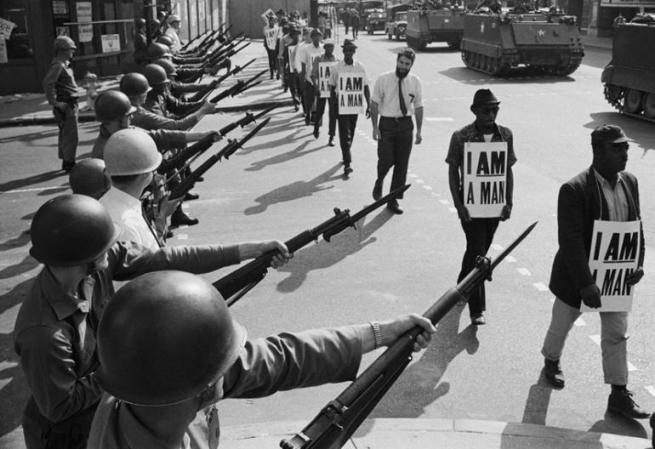When we lose a body, we lose everything.
Today in class, I was prepared to talk about Hassan Blasim’s The Corpse Exhibition, a collection of short stories set against the backdrop of the Iraq wars. I was prepared to talk about the role of politics in art, of the ways that we shape and recreate history to fit an artistic framework. We were going to discuss the structure of Blasim’s work, consider his historical eye constructing a narrative for a Western audience.
Instead, I am stuck, reading Albert Camus’ The Wager of Our Generation, and trying to find a way to absorb the heaviness that comes from tears shed and wasted anger.
What has my country done to my people?
This land is your land, this land is my land. I remember singing this song in school, wrapping my tongue around the flat sounds of my new American accent. I was a new American, a small black girl in a neat row of white faces. Somewhere in boxes I have kept closed for another time are photographs that show my visible alienation. The song was proof of a more subtle distance that lay between what I sang and where I stood, in this country, in this body, in this blackness, stumbling across this still-forming accent.
It is easy to sit in the residue of last night’s grief and assert that this land has never been truly mine. But no. It is my land. I claimed it long ago and I will not relinquish my rights to it. This is possession by necessity, as much about love as politics. The racist attitudes that put Michael Brown and so many who look like him, and me, in their graves will not distance me from this place that I will, that we must, continue to remake so it is also in our own image.
Last night, I tweeted a 1968 photograph of a march by sanitation workers in Memphis, Tennessee, taken by Ernest C. Withers. The black men are holding up stark signs that read, “I am a man.” The assertion is unequivocal. It is direct and emphatic and beneath it all, there is also this: the body and its frailty. I am a man. It is a declaration that strips away race and forces a consideration of their humanity.
But we should be further than this today.
But we should not be discussing our humanness. Not after all of this.
And yet, I sit here as an adult thinking back on that small girl smiling for a class photograph and I know that despite my years of education and travel and living, there are some things that have not changed. I am still in this body, with the same physical heart. The breaths I take move through the same lungs. The voice I speak with, now fully American, springs from the same small girl’s throat. This skin is still my own.
These are not metaphors.
I am looking now at the last of Blasim’s stories. He opens with a statement: “The body must be protected, not the thoughts.” I had believed, naively, that we had progressed enough in this country to move beyond the body. I thought it was possible to live in the world of metaphors and literature, to eschew the physical trappings of the body for the higher aims of the intellect. But now I am not so sure.
Last night’s verdict proves otherwise. Our bodies must be protected. Harriet Tubman dedicated her life to shepherding bodies towards safety. But today, the safe places have shrunk and we are many, and we are still standing in these bodies that will not disappear. And we refuse to be erased. And nothing I am saying, even now, is a metaphor.
So what now?
“We have nothing to lose except everything,” Camus writes. “So let’s go ahead. This is the wager of our generation. If we are to fail, it is better, in any case, to have stood on the side of those who choose life than on the side of those who are destroying.”
When we lose a body, we lose everything. The body must be protected, as Blasim says. What I am hearing as I read this and prepare for class, on this morning of incoherent thought, of reaction and fatigue? It is this. This land is your land and this land is my land and we are in it, you and I, and there must be space for these bodies to fit. And we must work to stretch the boundaries of this country that is shrinking. We have nothing to lose except everything. So let’s go ahead.
